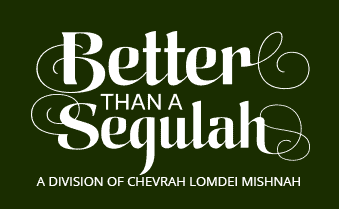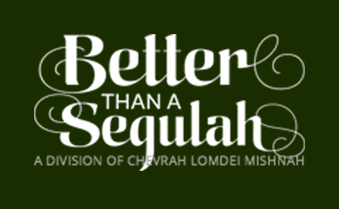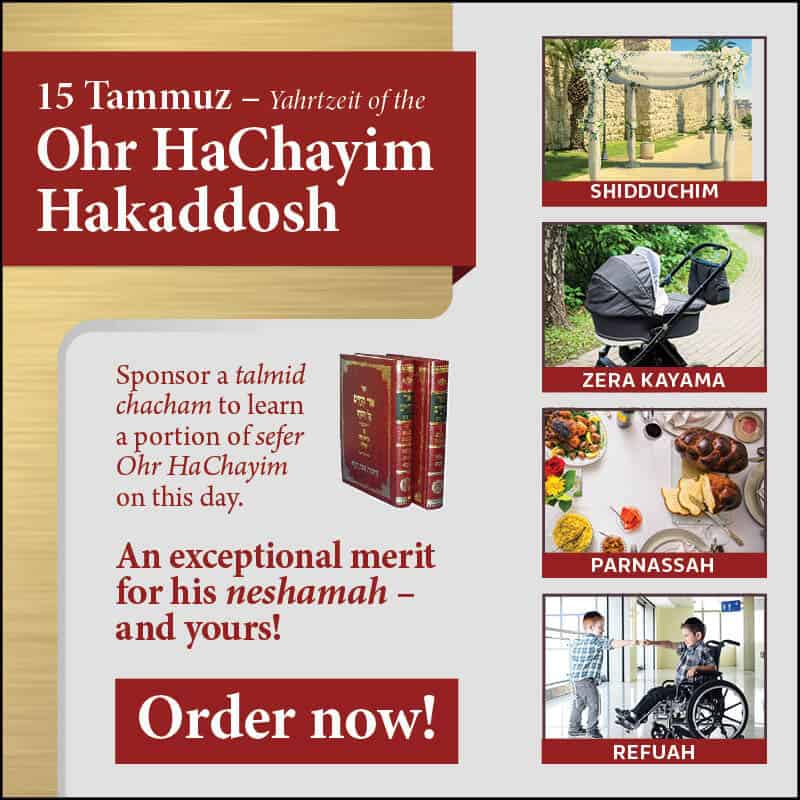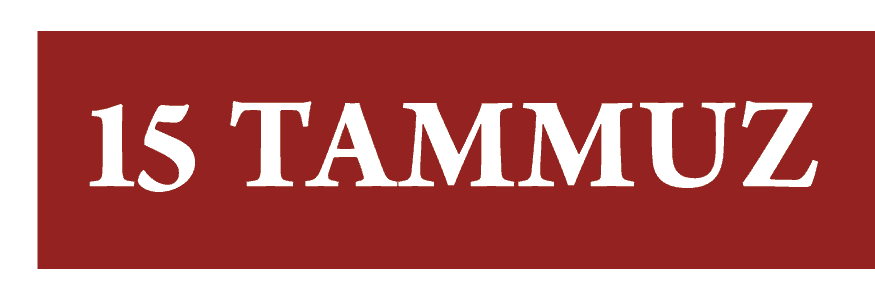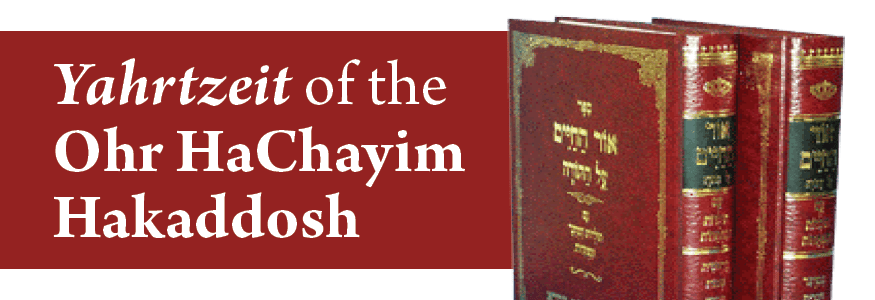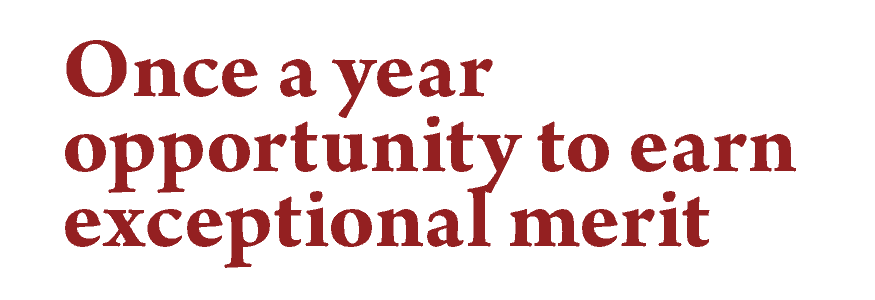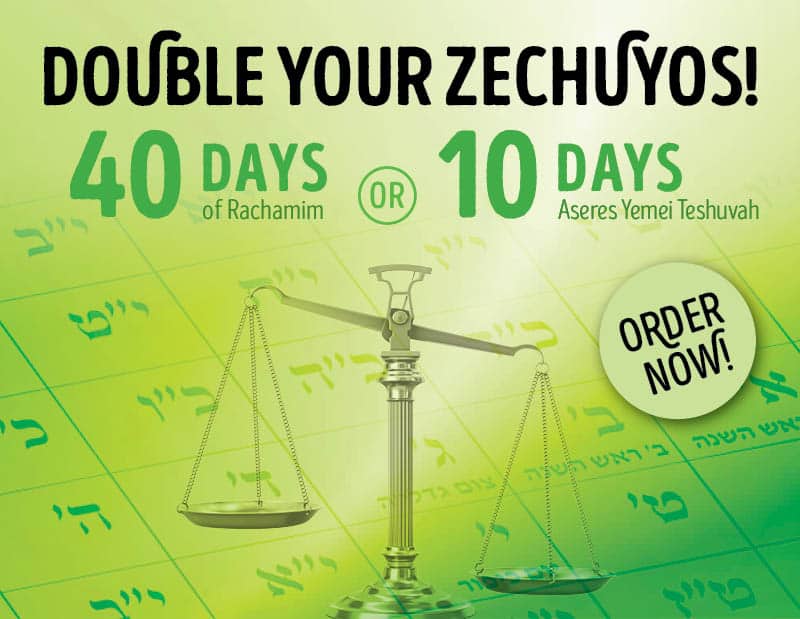- A person should always do the following to merit abundant livelihood: learn Torah and daven for parnassah; never lie or cheat in earning his livelihood; and have bitachon in Hashem (Segulos Yisrael, Ma’areches Mem, 18).
- A segulah for parnassah is not to run after parnassah, for when one does so, parnassah runs away from him (Imrei Pinchas of Koritz, Erech Parshiyos, 209).
- Showing hakaras hatov to Hashem is a segulah for parnassah to come easily and quickly.
- Possessing yiras Hashem and holding firm to this middah is a segulah for parnassah.
- Receiving a berachah from a gadol hador is a segulah for wealth.
- In the merit of keeping Shabbos, parnassah is granted in abundance.
- It is a segulah for parnassah to busy oneself with Torah learning, according to one’s ability. (One can even fulfill this by saying a perek of Tehillim, if that is what he is able to learn at his level.)
- Learning Torah every day before one goes out to work is an amazing segulah for parnassah.
- תלמוד has the same gematria as פת (bread), so that learning Torah is a segulah for פרנסה (heard in the name of Ha’Admor Hakaddosh MiBelz, in the name of Rabbi Uri MiStrelisk).
- פרנסה has the same numerical value as the Hebrew word משנה; learning one perek of mishnayos every day is a segulah for parnassah (told to Harav Rafael MiVarshid in the name of Harav Pinchas of Koritz).
- A segulah for livelihood is to daven for parnassah on Rosh Hashanah (Imrei Pinchas, Erech Parshiyos, 484 and 485).
- A good practice for one who wishes to see success in parnassah is not to engage in business until after davening. As our rabbis say, “It is forbidden for a person to be busy with his possessions (i.e., his livelihood) until after he davens” (Berachos 14a).
- It is a segulah to learn Gemara on a regular, consistent basis (Segulos HaBa’al Shem Tov V’Talmidav).
- It is a segulah for parnassah to establish for oneself a designated time every day to learn Torah (Sod Yesharim, Tinyana Likkutim, page 483).
- If one doesn’t have parnassah, he should learn Torah and then afterward daven for parnassah.
- One merits riches through honoring the Torah.
- A person should learn Zohar every day, and in that zechus he will merit parnassah (Harav Pinchas of Koritz).
- In order to ask for parnassah, a person must first act with humbleness (Tanna D’vei Eliyahu 85:14).
- Even if someone is very busy with his business matters, he is still obligated to learn Torah. Even when he is on his way to work and he is pre-occupied with work-related matters, he should learn something. One who does this every day will be amply rewarded (Ma’alos HaTorah).
- When a person recites the words from Ashrei: “Posei’ach es yadecha u’masbia l’chol chai ratzon,” he should have kavannah that his livelihood truly comes from Hashem and not through his own efforts at all (Ben Ish Chai, Ben Yehoyada).
- One who recites Birkas Hamazon with kavannah is not subject to Hashem’s wrath, and he thus merits abundant livelihood throughout his life (Be’er Heiteiv, Hilchos Birkas Hamazon).
- One should have specific kavannah during the following tefillos as a zechus for parnassah (Pele Yo’etz, Parnassah; Sefer Hachinuch, mitzvah 430):
- When reciting Shomei’a Tefillah in Shemoneh Esrei.
- When reciting birkas ha’nehenin; specifically during Birkas Hamazon, one should say every letter and word with care and invest a great deal of kavannah when saying the words, “Posei’ach es yadecha u’masbia l’chol chai ratzon.”
- According to the Chazon Ish, Yom Kippur is a time when it is particularly appropriate to ask Hashem for parnassah, just as the Kohen Gadol did in the Kodesh Hakaddashim, on behalf of every Jew (heard from Harav Moshe Sternbuch).
- A chassid once came to the Ruzhiner Rebbe and complained, “For years I have been having special kavannah during Kedushah of the Yamim Noraim, as this is said to be a segulah for wealth, but I am still as poor as ever.”
- The Ruzhiner Rebbe answered the man, “This segulah is for one who has this kavannah only during Kedushah, while during the rest of the tefillah he doesn’t think about money. But you – the only thing you think about during the entire davening is money, money, money!”
- When one says the words Posei’ach es yadecha u’masbia l’chol chai ratzon during Shacharis and Minchah, he should open his hands as if to bring down and accept the blessing from Above (Ben Ish Chai, Torah Lishmah, 31).
- It is a segulah for parnassah to say Parshas HaMan and then pray for parnassah and to believe that Hashem will surely fulfill one’s request (Harav Pinchas of Koritz).
- It is a segulah for parnassah to recite Birkas Hamazon out loud and with much joy (Nitzutzei Oros L’HaChida II, page 218).
- One should be very vigilant not to harm another by stealing or extorting from him in any way; through this, he will merit to see blessing in all his possessions (Chafetz Chaim, Shemiras Halashon: Cheilek Beis, parshas Bereishis).
- The Apter Rebbe says that it is a segulah for parnassah to learn Sha’ar Habitachon from Sefer Chovos Halevavos (Divrei Yechezkel Hachaddash).
- Harav Moshe Sternbuch writes that in the zechus of having emunah in our gedolim, even when one doesn’t understand their words, one merits receiving parnassah even in ways that cannot be understood (Ta’am V’da’as, parshas Beshalach, s.v. lechem min hashamayim).
- Honoring one’s wife brings blessing from Above. When there is peace between a husband and wife, the Shechinah dwells between them, and blessing comes from the Shechinah. This blessing comes specifically because of the wife (Chida, Pesach Einayim).
- Reciting Perek Shirah brings down abundant blessing and livelihood (Rav Chayim Vital; Sha’ar Hamitzvos, parshas Va’eschanan).
- One merits wealth through supporting talmidei chachamim. We see that Shevet Zevulun merited wealth because they supported Shevet Yissachar, who were immersed in the study of Torah (Medrash Rabbah; Zohar Hakaddosh).
- Through performing the mitzvah of giving ma’aser, a person is blessed with wealth, as it says (Devarim 14:22): “Aseir t’aseir” – you shall surely tithe. The doubled terminology in the passuk can be explained to mean, “Aseir bishvil she’tisasheir” – tithe, so that you shall become wealthy.
- Reciting the 13 Principles of Faith daily is a segulah for parnassah (Medrash Pinchas).
- Reading the Iggeres Haramban (the famous letter of the Ramban to his son) is a segulah for parnassah, as he writes there that “on the day that you read this letter, you will be answered from Heaven for whatever you ask” (ibid).
- It is a segulah for parnassah to daven copiously for one’s livelihood (ibid).
- It is a segulah for parnassah not to engage in any dishonesty in one’s work (ibid).
